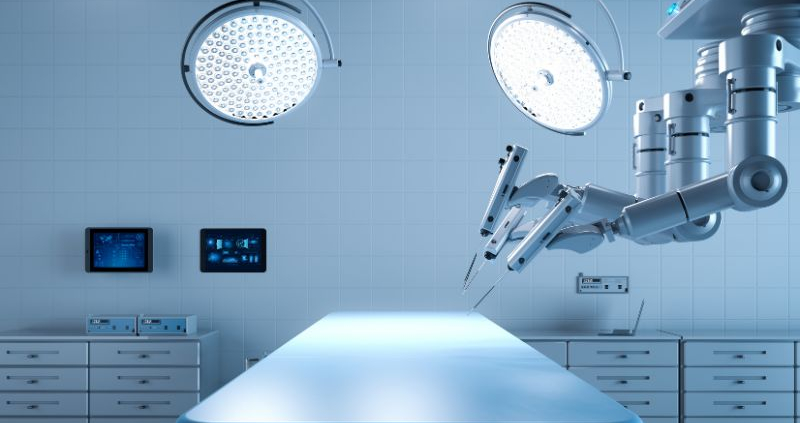Robotic knee replacement surgery is gaining popularity in the field of orthopaedics. With advancements in medical technology, this innovative approach to joint replacement offers several advantages over traditional methods. In this article, we will explore what robotic knee replacement surgery entails, debunk some common myths, and address typical concerns patients might have about the procedure.
What Is Robotic Knee Replacement Surgery?
Robotic knee replacement surgery is a sophisticated procedure that uses robotic technology to assist surgeons in performing knee replacements. During this surgery, damaged knee tissue is removed and replaced with an artificial joint. The robotic system aids the surgeon by providing enhanced precision, which improves the alignment of the implants and the overall outcome of the surgery.
Benefits of Robotic Knee Replacement Surgery
- Enhanced Precision and Accuracy: One of the primary benefits of robotic-assisted knee surgery is its precision. The robotic system helps plan the surgery in detail before the procedure begins, which ensures that the alignment and positioning of the knee implants are as accurate as possible.
- Faster Recovery: Patients who undergo robotic knee replacement surgery often experience a quicker recovery compared to traditional methods. The advanced technology used in the procedure minimizes the disruption to surrounding tissues, which leads to less pain and discomfort post-surgery.
- Reduced Risk of Complications: The precision of robotic surgery helps minimize blood loss and lowers the risk of infection. Additionally, the detailed pre-surgical planning helps avoid damage to important structures around the knee, such as nerves and blood vessels.
- Smaller Scars: While the incision size in robotic knee replacement is similar to that of traditional surgery, the advanced techniques used often result in fewer and smaller scars.
Common Myths About Robotic Knee Replacement Surgery
Myth 1: Robotic Surgery Is Prone to Computer Errors
Fact: Robotic knee replacement is not a fully automated procedure. Instead, it is a robotic-assisted surgery where the surgeon controls the robotic arm throughout the operation. The robot assists the surgeon by providing a virtual boundary to protect important structures, ensuring that errors are minimized.
Myth 2: Robotic Knee Replacement Surgery Is a Keyhole Surgery
Fact: Robotic knee replacement surgery requires an incision similar in size to that of traditional knee replacement surgery. The term “keyhole surgery” refers to minimally invasive techniques, which are not necessarily applicable to robotic knee replacement.
Myth 3: Not Everyone Is Suitable for Robotic Knee Replacement Surgery
Fact: If you are a candidate for traditional knee replacement surgery, you are also a candidate for robotic knee replacement. The procedure is often recommended for elderly patients because it reduces the need for jigs, which lowers the risk of complications.
Common Concerns After Robotic Knee Replacement Surgery
Concern 1: Restrictions on Physical Activities
Some patients worry that they will need to give up their regular activities after surgery. However, many patients find that they can resume their daily routines and even return to sports with proper rehabilitation and physiotherapy.
Concern 2: Limitations in Movement
Another common concern is the inability to kneel or squat after surgery. With appropriate post-surgical rehabilitation, most patients regain a significant range of motion, allowing them to perform these activities comfortably.
How Robotic Surgery Simplifies Post-Surgery Management
Robotic knee replacement surgery begins with a detailed CT scan of the knee, which helps create a personalized surgical plan. This plan allows for accurate implant placement and minimal soft tissue disruption. The meticulous planning and execution lead to reduced pain, faster recovery, and better long-term results for patients.
Conclusion
Robotic knee replacement surgery offers many advantages, including improved precision, faster recovery, and reduced risk of complications. Understanding these benefits and addressing common misconceptions can help you make an informed decision about your treatment options.
Always consult with your doctor or a healthcare professional before making significant dietary changes for Surgery. They can provide personalized guidance based on your medical history and current health status.
Note: If you have any health-related concerns, please call us at +91-9058577992 to receive a free consultation from our experienced doctors. Thank you.
